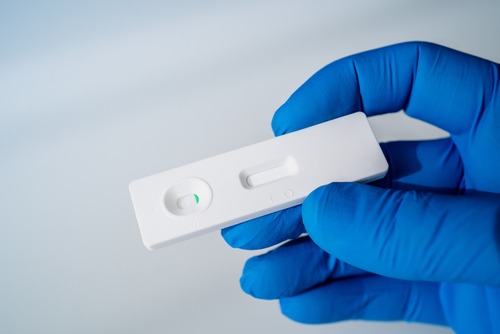
Even as China reopens itself to travel following years of heavy restriction due to the COVID-19 pandemic, its citizens face a new roadblock from entry to the United States: a demand for negative COVID-19 tests for any flier.
The restriction was announced by the Centers for Disease Control and Prevention (CDC) this week and will be applied to all air passengers on flights originating from China, as well as its Special Administrative Regions of Hong Kong and Macau, beginning on Jan. 5, 2023. The CDC added that these requirements could adjust in the future, but that for the moment, they were added as a means of slowing the spread of COVID-19 in the U.S. given China’s ongoing surge of cases.
In a statement, the CDC dinged the Chinese government for supplying a lack of adequate and transparent epidemiological and viral genomic sequence as well. It defined such data as critical for effectively monitoring a case surge and decreasing the odds of a novel variant of concern spreading abroad. New variants have been constant concerns throughout the reign of the SARS-CoV-2 virus worldwide, and viral genomic sequence data has been key to identifying and developing countermeasures to these variants.
Testing requirements on affected passengers will need to be met no more than two days pre-departure, as administered and monitored by a telehealth service or licensed provider authorized by the Food and Drug Administration or other relevant national authority. They will apply to all passengers from China that are at least two years old, as well as all people traveling from China through a third-country transit and those with connecting flights in the United States. Further, these requirements will also affect passengers transiting from Incheon International Airport, Toronto Pearson International Airport, and Vancouver International Airport on their way to the United States if they’ve been in China in the last 10 days, no more than two days prior to departure to the United States.
Nationality and vaccination status will not be considered in this requirement. It also offers a path to recovery considerations, allowing passengers who tested positive more than 10 days before a flight to provide documentation of recovery instead of a negative test result and still board their plane. However, airlines will need to confirm the negative COVID-19 test result or documentation for all passengers before they board and bar any who can’t provide them.
The CDC will also expand the Traveler-based Genomic Surveillance program (TGS) at this time – a voluntary program through which it collects anonymous nasal swabs from arriving international travelers on select flights and tests them for COVID-19 virus before sequencing its genome to identify any new variants.




